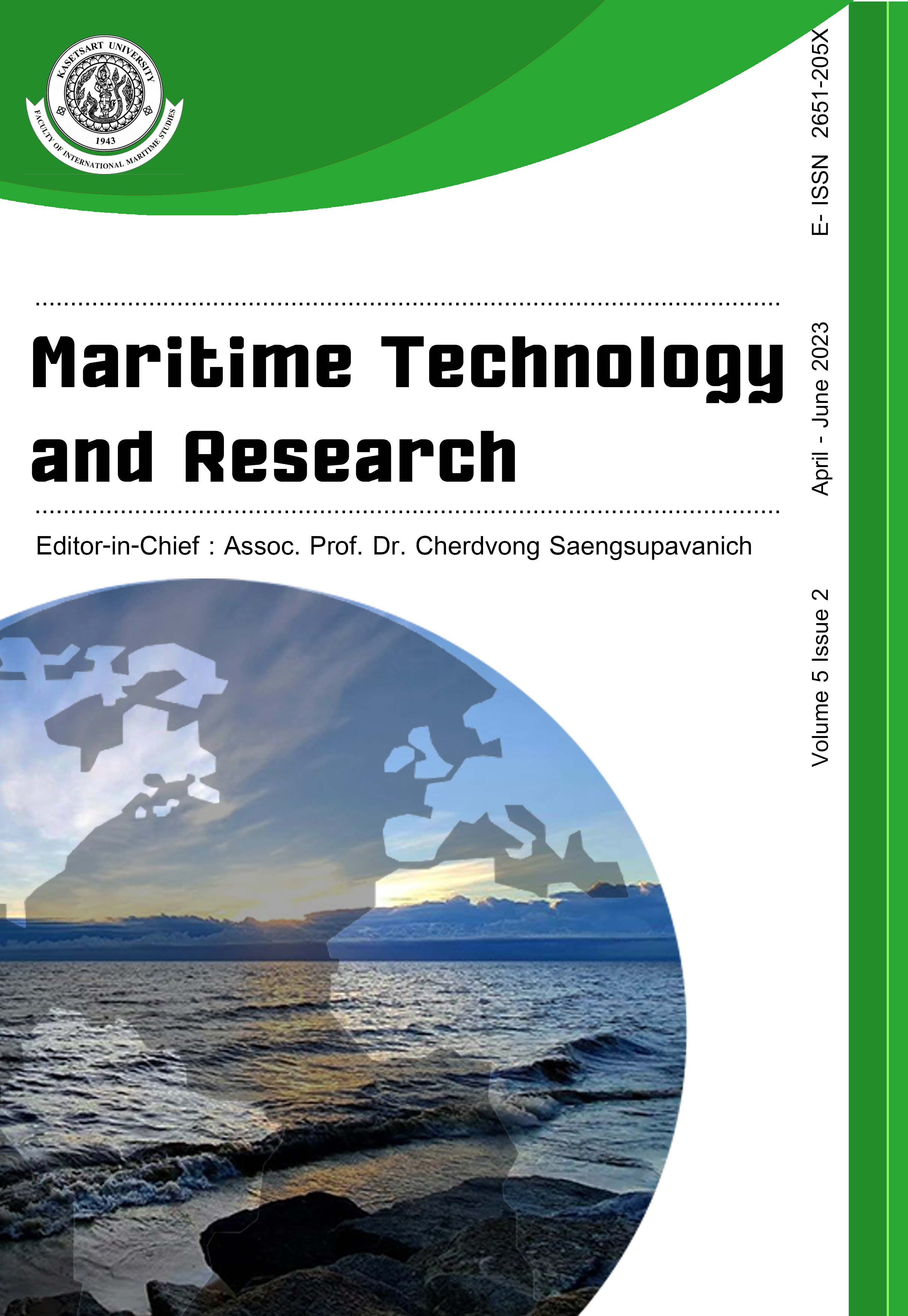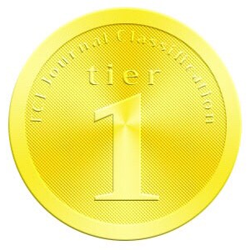Semantic arrangement of navigational safety management terminology
DOI:
https://doi.org/10.33175/mtr.2023.261390Keywords:
Navigation safety, Navigation safety management, Terminological system, Semantic organization, Topic group, Field structureAbstract
Ensuring ship navigational safety is a complex, multi-faceted problem that can only be solved while considering the human factor and, consequently, the language component of this problem. Terms in general, and navigational terms in particular, comprising the concepts of navigational safety and acting as tools of knowledge, are very important components of the professional communication verbal aspect. Although extensive, the English terminology of navigation is not described systematically enough in its more specific sections, which leads to terminological synonymy and a variative interpretation of some terms. These problems prevent maritime transport from becoming safer. This study of semantic correlations in the space of navigation safety provides a deeper insight into the nature of the phenomenon. It also enables maritime English instructors to develop an effective mechanism for students to master, based on the awareness of the correlation between term subjects and concept structures.
------------------------------------------------------------------------------
Cite this article:APA Style:
Dokuto, B.B., Boran-Keshishyan, A.L., & Myasnikov, S.V. (2023). Semantic arrangement of navigational safety management terminology. Maritime Technology and Research, 5(2), 261390. https://doi.org/10.33175/mtr.2023.261390
MDPI Style:
Dokuto, B.B.; Boran-Keshishyan, A.L.; Myasnikov, S.V. Semantic arrangement of navigational safety management terminology. Marit. Technol. Res. 2023, 5(2), 261390. https://doi.org/10.33175/mtr.2023.261390
Vancouver Style:
Dokuto BB, Boran-Keshishyan AL, Myasnikov SV. (2023). Semantic arrangement of navigational safety management terminology. Marit. Technol. Res. 5(2): 261390. https://doi.org/10.33175/mtr.2023.261390
------------------------------------------------------------------------------
Highlights
- The subject world of navigational safety management and the corresponding cognitive space are unique areas of professional activity at sea
- The complex nature of maintaining safety of navigation determines the hierarchical structure of its terminological system
- The concepts within the area of sea safety navigation categorize and systematize knowledge which forms an integral part of professional navigation at sea
- The methods of the study involve field approach, as well as hierarchical term classification, as some of the most effective ways to describe the lexical and semantic structures of specialized terminological systems
- The systematization of such units is relevant for the process of training navigators for work in mixed crews
References
Academic. (2022). Academic Dictionaries and Encyclopedias. Retrieved from https://dic.academic.ru/dic.nsf/ruwiki/166336
Asher, N. (2011). Lexical meaning in context (pp. 1-280). Cambridge University Press. http://dx.doi.org/10.1017/CBO9780511793936
Formela, K., Neumann, T., & Weintrit, A. (2019). Overview of definitions of maritime safety, safety at sea. International Journal on Marine Navigation and Safety of Sea Transportation, 13(2), 285-290. http://dx.doi.org/10.12716/1001.13.02.03
Gubanov, D., & Novikov, D. (2014). Analysis methods for the terminological structure of a subject area. Automation and Remote Control, 75, 2231-2247. https://doi.org/10.1134/S0005117914120133
International Maritime Organization. (2015). Model Course 3.17 (pp. 1-228). Maritime English, London.
International Maritime Organization. (2022). International Management Code for the Safe Operation of Ships and for Pollution Prevention (International Safety Management (ISM) Code). Retrieved from https://www.imo.org/en/OurWork/HumanElement/Pages/ISMCode.aspx
Lushnikov, E. M. (1995). Theoretical grounding of methods and means of navigation safety ensuring (Teoreticheskoye obosnovanie metodov i sredstv obespesheniya navigatsionnoi bezopasnosti moreplavaniya) (pp. 1-240) (in Russian). Summary of the Dissert, SP.
Oil Companies International Marine Forum. (2022). International Safety Guide for Oil Tankers and Terminals (ISGOTT 6). Retrieved from https://www.ocimf.org/publications/books/international-safety-guide-for-tankers-and-terminals-1
Skorokhodov, А. D., Borisova, F. L., & Borisov D. V. (2017). Categories and principles of ensuring safety of navigation (Kategorii I Printsipy obespesheniya bezopasnosti moreplavaniya) (p. 546-547) (in Russian). Vestnik MGTU.
STCW Convention. (2018). International Convention on Standards of Training, Certification and Watchkeeping for Seafarers. London: International Maritime Organization.
Tkachyova, L. B. (1987). Major regularities of the English terminology (Osnovniye zakonomernosty angliiskoy terminologii) (pp. 1-200) (in Russian). Tomsk, Томск: Izd. Tomskogo Univta.
Downloads
Published
Issue
Section
License
Copyright (c) 2023 Maritime Technology and Research

This work is licensed under a Creative Commons Attribution-NonCommercial-NoDerivatives 4.0 International License.
Copyright: CC BY-NC-ND 4.0








